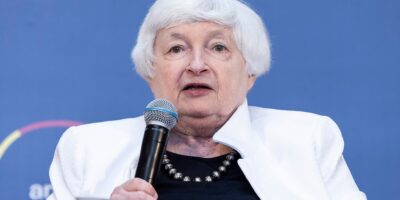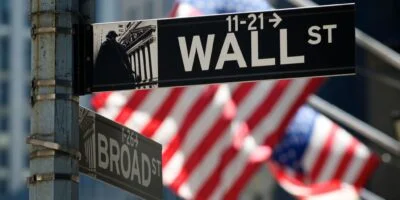Check Your Economic Hubris

Financial history is littered with poor predictions and bad timing. Perhaps that’s all due to selection/survivorship bias: We only record and recall financial predictions gone wrong. The good or mediocre ones we usually don’t think twice about.
After the crisis in 2007-2008, Queen Elizabeth famously visited the London School of Economics and asked a room full of economists why nobody had seen the crisis coming. For all your degrees and credentials, models and purported knowledge, how could your celebrated profession mess up so thoroughly?
2023 was a year in which economists once again had some of their megalomaniac hubris severely checked. Some of the juiciest bits may have been the serious scrutiny by key thinkers of Team Piketty on rising inequality and the fall from grace of behavioral economics alongside psychology’s unavoidable replication crisis.
But the gold medal goes to… drumrolls… the bank runs.
The Business Cycle Shall Be Tamed!
Let’s backtrack to the exuberant 2000s: America ran the world, its population was rich and growing ever richer, its ground-breaking technology was everywhere, and its wise policymakers had conquered both stock market irrationality and recessions.
In 2003 Robert Lucas, Nobel Laureate and long-standing economics professor at University of Chicago, delivered an infamous presidential address to the American Economic Association where he concluded that macroeconomics had succeeded: “its central problem of depression prevention has been solved, for all practical purposes, and has in fact been solved for many decades.” The thesis was clear: top-down demand-management has been a success. We now know how to manage unpredictable changes in the economy and purge financial excesses. We can stop all manner of bad things in their tracks — recessions, financial crises, or bank runs.
The next year, Robert McTeer, president of the Dallas Fed, remarked that the “business cycle is being dealt with much better than it used to be. Policy makers are smarter.” His colleague Timothy Geithner, at the time president of the New York Fed and later Secretary of the Treasury under President Obama, observed in 2006 that “the fundamentals of the expansion going forward still look good.”
But the most awkward and ill-timed comment came from MIT’s Olivier Blanchard who, for his excellent prediction, was awarded the position as chief economist at the IMF. A month before Lehman Brothers collapsed, he concluded that the economics profession had come to a consensus in vision and methodology and that economists understand their topic well: “The state of macro is good.”
Let There Be Bank Runs!
In October 2022, the economists Douglas Diamond and Philip Dybvig, authors of the most famous paper in all of money and banking, were awarded the Nobel Prize in economics. They shared the prize with Ben Bernanke, whose papers on the Great Depression earned him a Fed position and subsequently threw him into the deep end during the 2007-8 financial crisis. In December 2022 they were all flown to Stockholm to pompously receive the award and present their research on how government policy stops bank runs.
Three months later, America’s banks were on fire.
Diamond and Dybvig’s paper stated that banks are inherently unstable, and fickle depositors prone to unsubstantiated runs can entail unnecessary losses to society when their assets must be disposed of in a rush before the real-world investments that those deposits funded mature and pay off. The socially optimal solution, said these two gentlemen in a theoretical model endlessly repeated by central bankers and economists ever since, was government deposit insurance: If governments stand ready to reimburse depositors’ funds, the incentive to run goes away and we won’t have bank runs any more.
Beautiful. Economists had “solved” the fundamental problem of banking.
Except that banks were still runnable, which the Brits learned in 2007 when the building-society-turned-bank Northern Rock couldn’t roll over its aggressive short-term funding. Instead of depositors running on a bank, we had smart money refusing to finance it: an institutional “run” on the bank. (Retail depositors lining up outside bank offices only after the Bank of England had announced lender-of-last-resort policies made for comical news coverage.)
In the regulation-heavy aftermath of the crisis, strong-mouthed policymakers imposed heightened capital and liquidity measures on banks and ran a victory lap around their achievements. The worst was Janet Yellen, a central banker of three decades who took over Bernanke’s mantle as Federal Reserve Chair (and now serves as Treasury Secretary in the Biden administration). In 2017 she felt so comfortable in the successful regulatory patch-up that she said she didn’t believe that another financial crisis would happen in her lifetime.
A few short years later — Yellen still alive and kicking — we had the repo madness of September 2019, where the Fed’s quantitative tightening in tandem with liquidity regulation almost broke the banks; the COVID-19 disaster where the Fed minted dollars as if there was no tomorrow; the “inflation is transitory” mantra where the Fed officials seriously dropped the ball; and the breaking of the banks, courtesy of Fed tightening and (once again) the liquidity rules that pushed banks into holding Treasuries — which duly collapsed in value and caused hundreds of billions of dollar in losses to the banks. Oh, yea, and depositors pulled funds from Silicon Valley Bank, which ultimately closed and was carved up by the FDIC at the bargain cost of $20 billion in losses.
So much for stable financial conditions and regulations.
It wasn’t the first time the Nobel committee’s stock picking had turned out so embarrassingly poor, and I daresay it won’t be the last. It awarded the 1997 prize to Robert Merton and Myron Scholes for their work on options theory, widely employed in the financial behemoth Long Term Capital Management of which they were partners. The following year, the celebrated fund exploded after deploying excruciatingly high leverage on hopelessly misguided options bets.
It’s never what you expect will break, said Financial Times’ Robin Wigglesworth in the midst of the bank runs:
“It should have been high-yield credit, it should have been a crashing stock market, and it should have been a recessionary spike in unemployment. But instead, higher interest rates ultimately toasted poorly hedged banks with long-duration assets.”
The tendency for central bankers (and generals, and politicians, and…) to fight the last war is cliché only because it’s been accurate so many times. Jón Daníelsson, economist at the London School of Economics — and probably in the crowd when the Queen asked that infamous question in 2008, echoed Hayek in his book The Illusion of Control: “the central banks are making the same mistakes as the central planners of yesteryear.” And then he proceeded to trash risk models, regulation based on past data, and stress testing that amounts to little more than window dressing — finance’s own security theater. Rivaling Lucas’ comment above, Daníelsson says he received a rejection from a peer-reviewed article around 2003, with the comment that his paper on financial crises was “irrelevant because the problem of crises has been solved.”
As 2024 opens, the bank term funding program, which the Fed hurried into existence to patch over systemic fragilities of its own making, keeps hitting new records. What these events should teach us is that elite insiders rarely have a clue that even the most celebrated and triumphed ideas or personalities can fall apart at a moment’s notice. No matter how glorious it was for Icarus to fly and how well he thought he could do it, reality has a way of punishing excessive hubris.
There’s certainly some privilege checking and hubris purging in store for the top economics corps and our central planners and policymakers. If they don’t recognize that, we might be in for an even more turbulent year.










